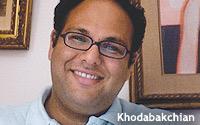Feedly Focused On Inheriting RSS Crown
- by Mark Walsh @markfwal, July 5, 2013
 Since Google announced it would shut down Google Reader by July 1, more than a dozen smaller RSS readers have
rushed to fill the void. Among the leading contenders to replace Google Reader as the Web’s RSS king is Feedly, which saw its user base grow more than fourfold to 12 million by the end of May
following the Google announcement.
Since Google announced it would shut down Google Reader by July 1, more than a dozen smaller RSS readers have
rushed to fill the void. Among the leading contenders to replace Google Reader as the Web’s RSS king is Feedly, which saw its user base grow more than fourfold to 12 million by the end of May
following the Google announcement.
The service is now available on any browser through a new cloud-based service, as well as through its free iOS and Android apps. To help lure Google Reader users, it added a similar headline-only viewing option and a one-click migration tool from the doomed product. While the process has not been without kinks, the company appears to be making converts quickly.
MediaPost caught up with Feedly founder and CEO Edwin Khodabakchian recently about the company’s efforts to capitalize on Google Reader’s shutdown. Prior to starting Feedly in 2007, he was a vice president for product development at Oracle, which acquired his prior startup, Collaxa, in 2004.
MP: What has been the biggest challenge in adding all these new users so fast?
EK: Server capacity has been the largest challenge. Given the number of servers we had to add, it's fair to say that Dell has benefitted from Reader's demise.
MP: How much of an impact did David Pogue’s New York Times column in May on Feedly have on attracting new users?
EK: It had a very big impact, and certainly a positive impact. It's hard to quantify how much traffic and how many new subscribers David's column sent our way, but fair to say we owe him a debt of gratitude.
MP: Can you say what the split is so far between mobile and desktop traffic? Do you expect more mobile use over time?
EK: The desktop traffic is about one-and-a-half times the mobile traffic. People seem to have different consumption modes at different time of the day. Snacking on mobile is definitely growing fast.
MP: I haven’t noticed any ads on Feedly. How does the company plan to make money?
EK: We will be announcing our monetization plans at some point in the future.
MP: In general, RSS readers have always been seen more as a tool or feature rather than a stand-alone business. Why is Feedly different?
EK: We are at the intersection of two interesting problems -- one, how do we empower people to curate and consume the information that is important to them, and two, how do we help publishers better distribute and monetize their content. Feedly is positioned uniquely as a neutral third party to enable that relationship/transaction.
MP: Feedly has a lot of competition out there, especially with the launch of AOL Reader and Digg Reader (which looks a lot like Feedly). Do you see any other service as being a more direct rival than others?
EK: We've said all along that Google Reader's retirement is a good thing for the reader community. With the 800-poulnd gorilla out of the room, there is lots more room for innovation. Everyone will benefit.



I was one of those who stuck with Google Reader to the bitter end but tried a few others out along the way. My first experience with Feedly was unsatisfactory but when I tried it a second time it seemed to click. Other than some "scrolling" issues (personal preferences not technical difficulties), I'm finding that it is a really good alternative. And the fact that they ramped it up so quickly I think shows signs of even better things to come.
Rusty Winter
Online Advertising Jacksonville